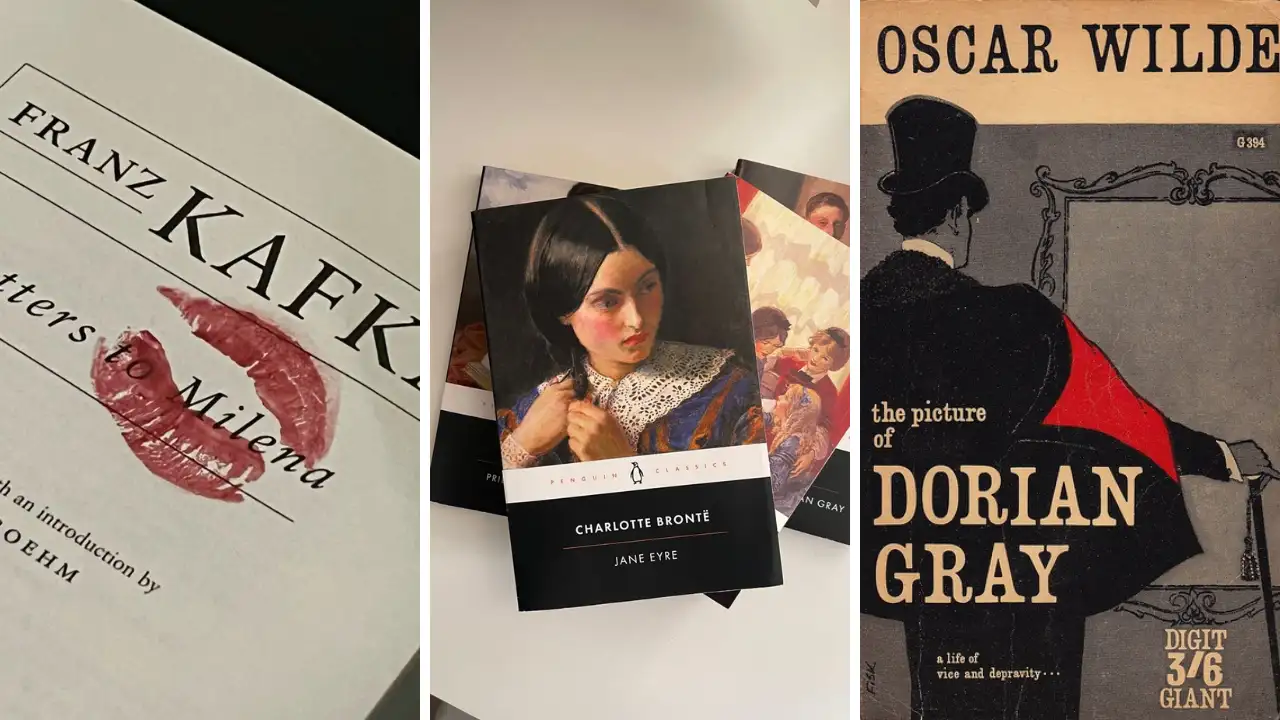By Simran Sukhnani
Copyright timesnownews

Some books begin with a story, a singular line, that instantly sets the work on fire. It gives you a jolt of what the book is carrying, the emotions come all at once, right in the first line. These books do not whisper a quiet and sweet introduction as you get back in your seat and make yourself comfortable. They immediately pull you into a world that you can never forget. These lines have haunted readers for generations, lingering in their minds after long, even after the final page is tuned. These book openings define a feeling that stays with you, for what feels like almost a forever. To begin with the most legendary book openings of all time is Albert Camus’ The Stranger that mentions “Maman died today. Or maybe yesterday. I can’t be sure.” In just a line, and seven words in total, Camus dismantles everything he is obligated to when it comes to sentimentality. He introduces an emotional detachment so unsettling that you can feel the existential chill before you even get to shake hands with Meursault. What’s the cruelest part of this is the simplicity, a feeling of loss without sorrow, without any depth or feeling, just a mirror of absurdism that defines the novel. Then there’s the infamous 1984 by George Orwell that begins with “It was a bright cold day in April, and the clocks were striking thirteen.” One sentence, and the unease begins. A familiar yet wrong feeling about a world close to ours that feels real and just bold enough to send a shiver down your spine. The mention of the extra hour is what breaks reality and sets the perfect tone for Orwell’s dystopian world that is warped with truth. And just like that when Jane Austen’s Pride and Prejudice opens up on an ironic note as opposed to a horrific one, we get “It is a truth universally acknowledged, that a single man in possession of a good fortune, must be in want of a wife.” A line that’s so witty it practically feels like a wink, giving the best glimpse in Austen’s life and her lifelong dance between social critique and romance. It’s an opening that has aged into timeless relevance, capturing the humor and hypocrisy of matchmaking culture. When J.D, Salinger begins The Catcher in the Rye with “If you really want to hear about it, the first thing you’ll probably want to know is where I was born…” and Holden Caulfield’s voice bursts through the page. It is weary, cynical and achingly real. This opening is not describing simply a setting but rather setting a mood. It introduces the disillusionment of youth long before the term “teen angst” existed. And when Kafka imagined himself as Gregor Samsa of The Metamorphosis and started with “As Gregor Samsa awoke one morning from uneasy dreams, he found himself transformed in his bed into a gigantic insect.” The absurd, almost unreal to believe, horrifying and completely unceremonious beginning that hits you like a truck as soon as you begin. Kafka doesn’t just open a story; he shoves you straight up into its madness. Then there was a time when Leo Tolstoy’s Anna Karenina begun with: “All happy families are alike; each unhappy family is unhappy in its own way.” It’s the kind of opening that feels like it’s been etched into literature’s DNA. Philosophical, fatalistic, and painfully true, it foreshadows every heartbreak to follow. And the list of unforgettable openings doesn’t end there, for it stretches even further. Charles Dickens’ A Tale of Two Cities begins with a line so heartfelt that it immediately places the reader at the crossroads of history and paradox: “It was the best of times, it was the worst of times, it was the age of wisdom, it was the age of foolishness…” the rhythm and the contrast set the perfect tone for a novel that is later revealed to be steeped in revolution, hope, despair and a world of other emotions while pulling the reader into a tale of intimate human drama. To Kill A Mockingbird begins wasting no time as Harper Lee starts the story with “When he was nearly thirteen, my brother Jem got his arm badly broken at the elbow.” While it may not tell you everything about the plot of the novel, it is simple yet controversial enough to hook you in. The line, to-date remains understated as it immediately hooks you into the Finch family’s dynamics and the Southern world of Scout’s childhood. It opens the door to a story about innocence, morality, and the harsh truths of society. Then there is Ray Bradbury, who begins one of the most engulfing stories, aka Fahrenheit 451, with a straight face, “It was a pleasure to burn.” One sentence, six words and you find yourself in the middle of fire, embracing you, engulfing you, both symbolically and literally, into a dystopian world where destruction is celebrated with joy, control is absolute and rebellion smolders beneath the surface. The opening is incendiary, jarring, and unforgettable, leaving you with a sense of unease before you even meet the characters. Vladimir Nabokov begins Lolita with a statement so startling it immediately ignites tension: “Lolita, light of my life, fire of my loins.” The reader is immediately confronted with the height of desire, obsession and moral ambiguity, all wrapped in a single lyrical, unsettling prose. It’s audacious, intimate, and impossible to forget. Decades later, to this day, these lines continue to haunt us because they do more than just sitting as tame introductions to revolutionary literary works. They define. Each one is a thesis in disguise, a tone-setter that tells you everything about the book’s soul in a single breath. Sometimes, all it takes is one sentence to make literature eternal.